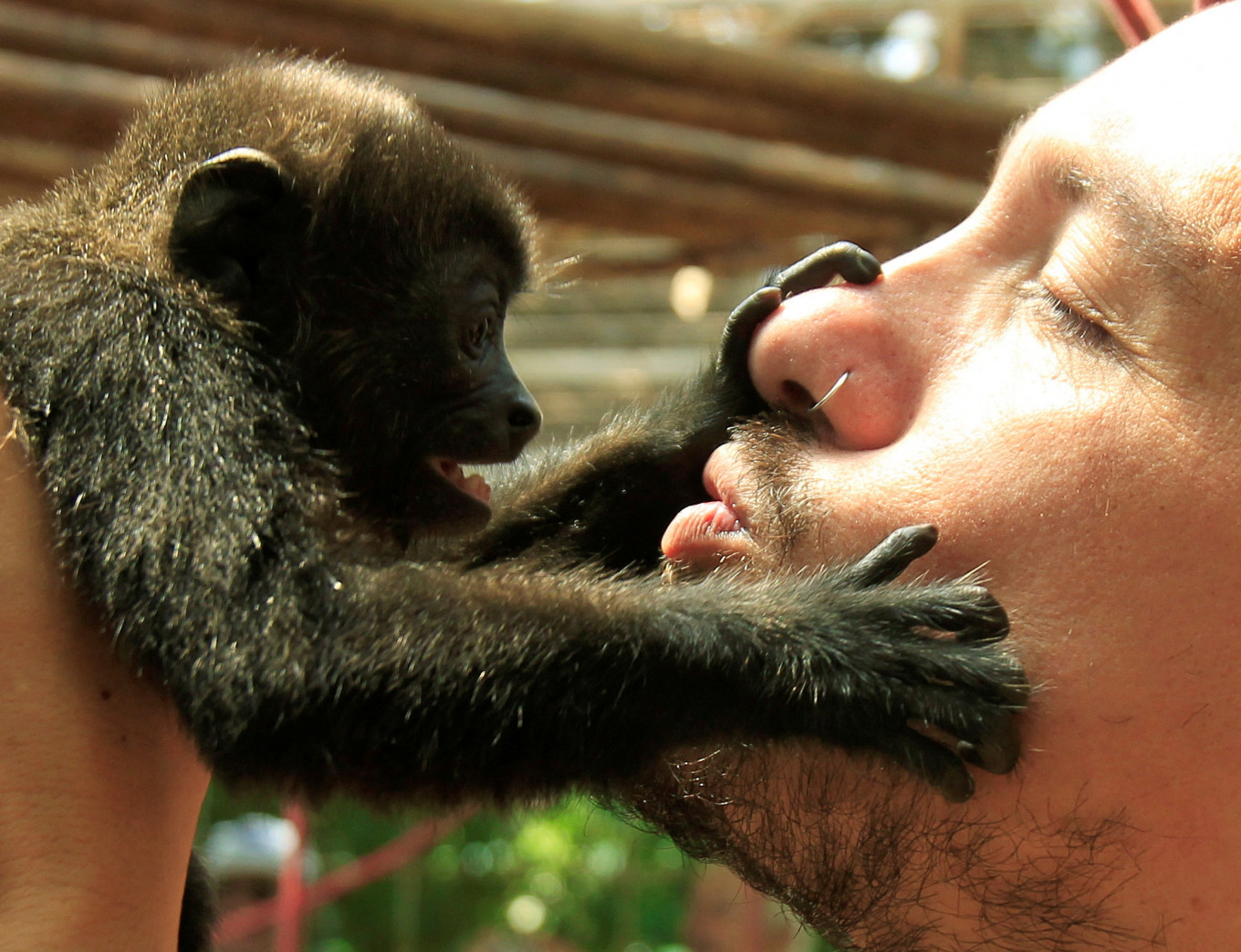Popular Reads
Top Results
Can't find what you're looking for?
View all search resultsPopular Reads
Top Results
Can't find what you're looking for?
View all search resultsFirst kiss was 20 million years ago by early primates, scientists say
The study argued Neanderthals and humans also likely locked lips, given evidence that they interbred and shared an oral microbe - a sign they swapped saliva - long after the two species diverged 450,000-750,000 years ago.
Change text size
Gift Premium Articles
to Anyone
K
issing did not begin with star-crossed human lovers but with the primate ancestors of great apes around 20 million years ago, according to a study published on Wednesday.
Researchers from Oxford University and the Florida Institute of Technology wanted to examine when kissing began, given that from an evolutionary standpoint it has no obvious survival benefit, and could spread disease.
Yet humans, chimpanzees, bonobos, orangutans, and gorillas all kiss, which strongly suggests the habit was inherited from a shared ancestor. Scientists in the study combined observations of primate behavior with data on evolutionary relationships, to rewind the clock and try and date the first kiss.
"Using these two key pieces of information, we employed a modelling approach that allowed us to simulate different evolutionary scenarios," said lead author Matilda Brindle of Oxford's Department of Biology. Running the model millions of times put that first smooch at 21.5-16.9 million years ago.
The findings were published in the journal Evolution and Human Behavior.
The scientists' unromantic definition of kissing was "non-aggressive, mouth-to-mouth contact that did not involve food transfer." This included sexual kissing as well as platonic kisses such as those between family members or in friendly greetings. How kissing emerged remains a subject of debate, as does why it persisted.
"Some people suggest sexual kissing is a useful way of assessing mate quality or suitability," Brindle said. "Alternatively, kissing could be a type of foreplay, increasing sexual arousal and boosting the chance of fertilisation."
Platonic pecks are thought to be used to navigate complex social relationships or increase bonding, she said.
The study argued Neanderthals and humans also likely locked lips, given evidence that they interbred and shared an oral microbe - a sign they swapped saliva - long after the two species diverged 450,000-750,000 years ago.











